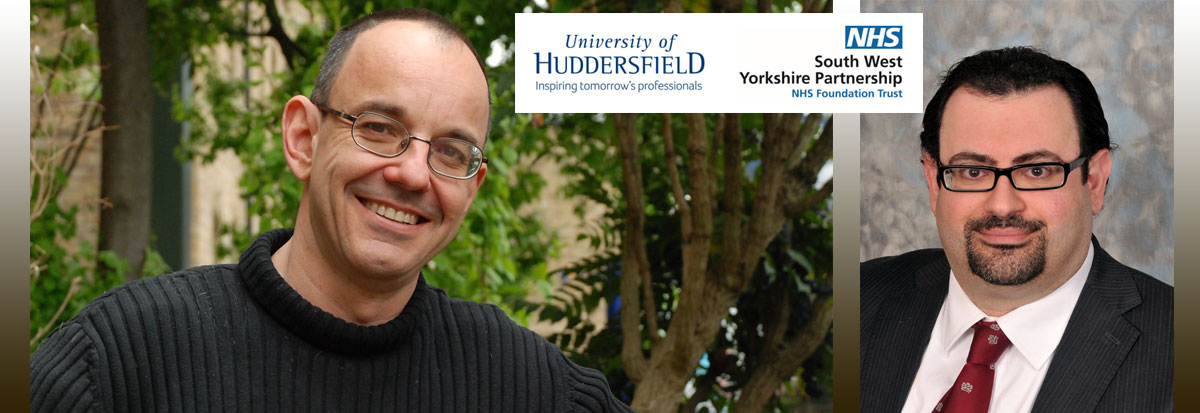
Artificial Intelligence to help prevent suicide

Professor Grigoris Antoniou led the work with South West Yorkshire Partnership NHS Foundation Trust
A UNIVERSITY of Huddersfield team led by Professor Grigoris Antoniou, and working with South West Yorkshire Partnership NHS Foundation Trust (SWYPFT), has pioneered the use of Artificial Intelligence (AI) to predict which mental health patients are most likely to take their lives. Although clinical decisions about suicide risk will always be based on clinical judgement, findings from this research should aid decision-making and structure judgments by identifying high risk patients based on learning from previous completed suicides. Worldwide, this is among the first uses of AI for suicide prevention, and now that the potential has been established, further research will be carried out into ways of deploying the new computer-based technique.
Professor Antoniou, a globally-acknowledged expert in AI technologies and his team analysed data from more than 100 suicide cases in order to compile a list of the key risk factors. Now, he is confident that the new AI-based methodology, when fed with a rich data sample, will allow for an automated suicide risk assessment at referral time with an accuracy significantly higher than the risk assessment scales currently in clinical use. “Human behaviour is in general very difficult to predict,” said Professor Antoniou, adding that there was a danger that professionals dealt with so many patients that they became desensitised to the warning symptoms.
“We wanted to see whether we could come up with an automated risk assessment to inform and structure clinical judgements about suicide risk,” continued Professor Antoniou, explaining that the concept emerged during talks with Professor Marios Adamou, who is a consultant psychiatrist at the South West Yorkshire NHS Trust and Visiting Professor at the School of Human and Health Sciences at the University of Huddersfield.
This collaboration, co-funded by SWYPFT and the University of Huddersfield, meant that Professor Antoniou and Professor Adamou worked together having been provided with anonymised medical records of 130 Trust patients who had died by suicide between 2013-16. There was a large amount of data, including details of 1,000 referrals and 12,000 appointments.
Professor Marios Adamou said: “This new innovation will be a valuable tool to help and support both service users and those providing care. Using new advances in technology like this will help us to identify high-risk service users easier and ensure they receive the right intervention at the right time. It is important that, as clinicians, we use every tool available to us to help those who are most at risk and I look forward to seeing this innovative new approach used in practise, not just in SWYPFT but across the country.”
Professor Antoniou used machine learning methods to identify all of the referrals that proved to be the most urgent cases – within three to six months of suicide. This analysis was aided by Professor Ioannis Tsamardinos, a Visiting Professor at Huddersfield and an internationally leading expert in machine learning. A variety of risk factors were considered, including structured medical records, localised parameters like postcodes, and medical notes in free text. The initial results are very promising, and form the basis of a paper just accepted for publication by the journal Crisis. Work with SWYPFT is planned to continue on the basis of an extended and richer data sample, aiming to develop a risk assessment model that is sufficiently robust for deployment in a clinical setting.
The prototype of the automated suicide predictor is locally adapted to SWYPFT. “But based on these promising preliminary findings, we are confident we could adapt it for mental health services in other NHS Trusts, as well as in other settings in the UK and internationally,” said Professor Antoniou. “Clearly, further research in this exciting area is required.”
Dr Michael Doyle, Deputy Director for Nursing and Quality for SWYPFT, and lead for suicide prevention for the West Yorkshire and Harrogate Health and Care Partnership said: “Suicide prevention is a key priority across West Yorkshire and Harrogate. Health and social care providers from across the area have come together to pledge their commitment to suicide prevention. This research is promising and based on further research of this type, we hope to eventually develop a computer-based approach to clinical decision making that will help us prevent suicide.”
More News
Major child sex abuse victim survey under way
50,000 young people will take part to discover the extent to which victims of abuse begin to display mental health problems
Children with autism create imaginary friends
Dr Paige Davis led the project which was published in the Journal of Autism and Developmental Disorders
Campaign for leg ulcer awareness gathers pace
Lecturer/Consultant Dr Leanne Atkin leads campaign to promote high quality lower leg and foot care